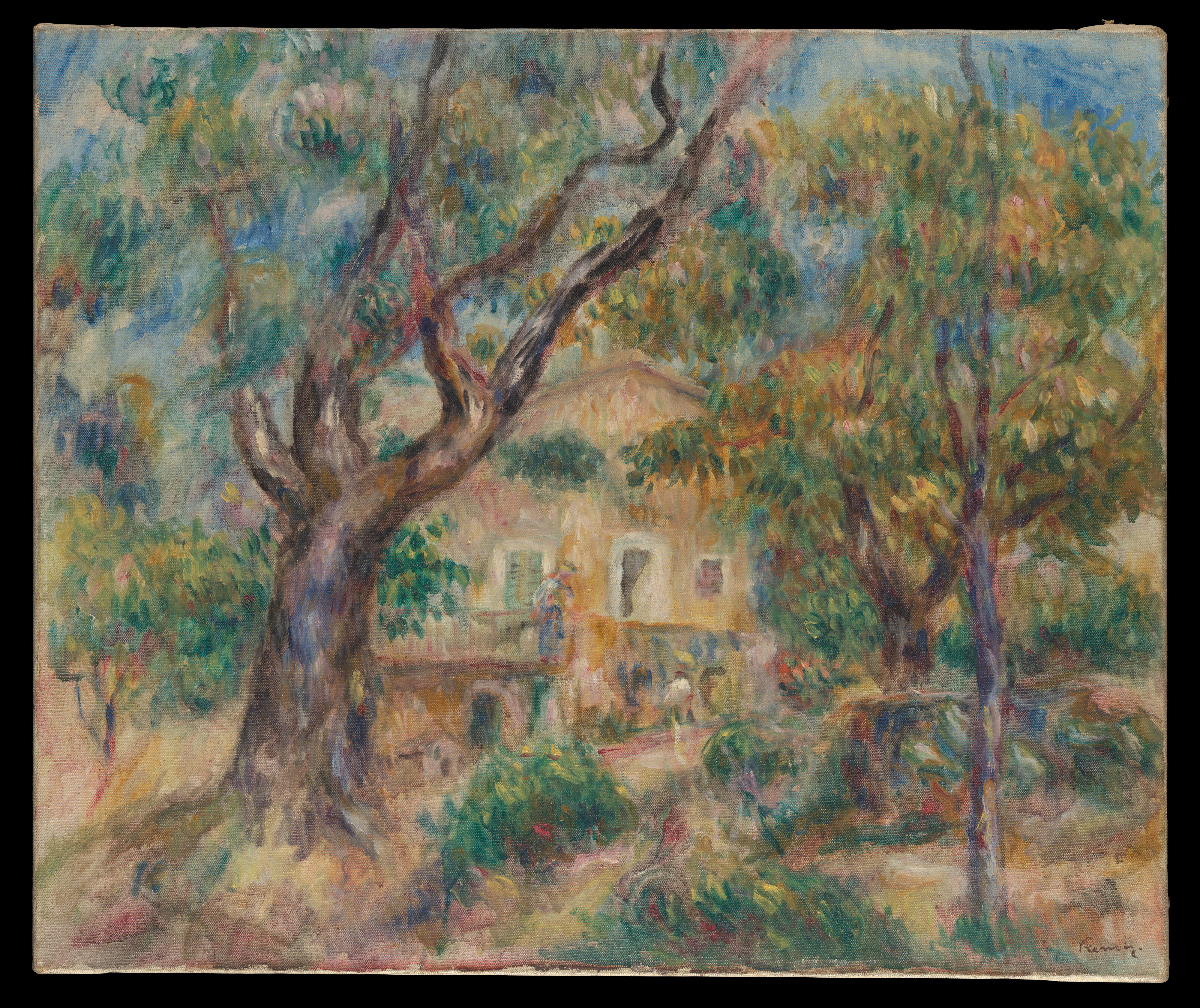Weeds, Oft' Belong (some prose and a sonnet)
“Auguste Renoir | The Farm at Les Collettes, Cagnes.” The Metropolitan Museum of Art.
I thought of gardens - the gardens on the land, the gardens in the heart, others' gardens, one specific garden, gardens from books, gardens from memory, gardens of nature, of stone, of goodness, and also gardens of evil, understanding one from the other. Then, as in a dream, I thought of mixing them, creating them, planting them, destroying them, altering their parameters, weeding and pruning them, wild and tamed ones, making something beautiful, finding beauty, altering beautiful gardens once they are made, refiguring them once they are destroyed. Around the gardens are the lawns, the approach, how you come to get close to the garden, the negative space, then the perimeter, then the wild places beyond. Sometimes the wild things come, both plants and animals, and eat the leafy greens, the dandelions, and the occasional bulb, especially the purple ones for the groundhogs, and foraged through the beauty for the laws of the gardens. Keeping the lawns longer was a way to assuage the hunger of the ones who were bold enough to continue to the garden.
The garden had come unkempt from some days of neglect. When spirits are good, I'd have the presence to be out there making adjustments but the days' evils caught up with me and doused that energy from my bones for some time. In truth, I prefer some wildness to a garden, it reflects a bit more the truth of things. Weeds, often belong. Just not too many and not for too long. There are the plants that make foundational elements though the real treasures come in the unpredictable and surprising. Wildflowers always belong, if they can be saved among the scattered grasses. I especially like when they are found unevenly clumped around stones or near corners of the walls. Even more so I like these in the periphery and on transitions. A garden with many transitions will activate imagination and children will like it. Maybe that's why I like it, because I am a child, though I know that's more of a wish than reality. At least some of the time.
On days like today I pace the grounds, however small, and find the remnants of work from some years back. Occasionally while in this contemplative condition I will stop to weed, pulling out the larger, more egregious plants that look ugly or that take up too much space. Where do they come from? I often ask myself. From the soil where, if I had dug, in the early winter I would find nothing but black earth? The gardens hold all the world's mysteries and, if diligently searching, all of man's. When I first started in the garden projects it was more a canvas project to make the lands around the home beautiful. Soon after I began to notice the shear number of species that make up the land - the plants, insects, birds, and other animals and living creatures from microscopic to large. It appeared to me that the whole of life was encompassed in my yard and when covered with sweat, dirt and some blood, that this included my own body and presence in it. Yet, even with all this, there is something more, when searching for spirit, that invisible presence that makes it all possible. Life is so unlikely yet every footfall has within it a physical manifestation of the spirit which makes it possible. This, standing in stark contrast to the sea of information and advertisements that comprises the electronic world which I now inhabit (and you too, if you are reading this and scrolling). So, I thought to try for a poem again, for the gardens, to tend to other gardens...
Weeds, Oft' Belong (a sonnet)
Daniel Francis
I thought of gardens, gardens on the land
the gardens in the heart, gardens from books
gardens of nature, gardens of delight, looks
anew to plot and course gardens yet unplanned
gardens from memory, gardens of stone
wild and tame ones, gardens of goodness
close to the gardens from prayers so blessed
to plant and destroy them, gardens of bones
When spirits are clean, and remembrance dark
of season's forced neglect and weeds remain
I pace the grounds, however small, in flight
For there to observe on earth wild and marked
are creatures and spirits and love and rain
Blessed as footfalls, to tend from days blight

 X
X
 BlueSky
BlueSky

Comments
Post a Comment